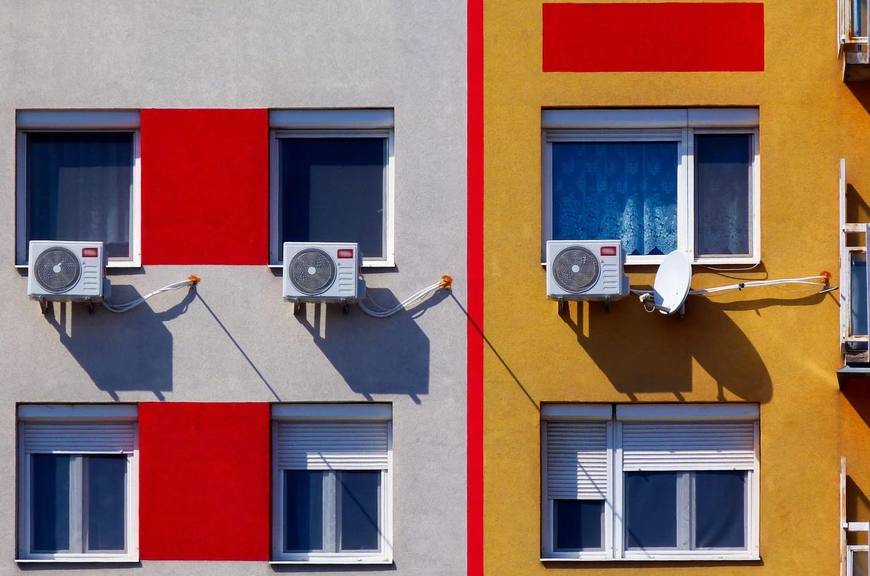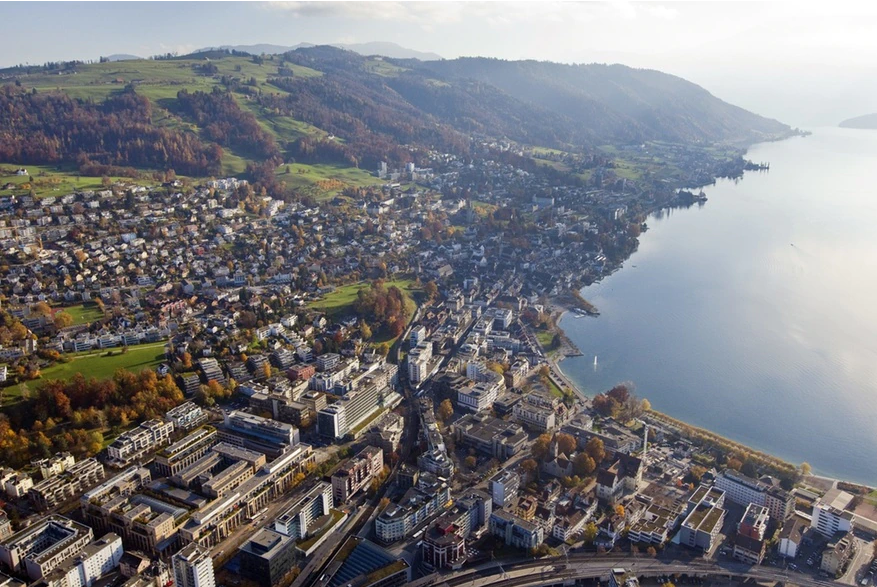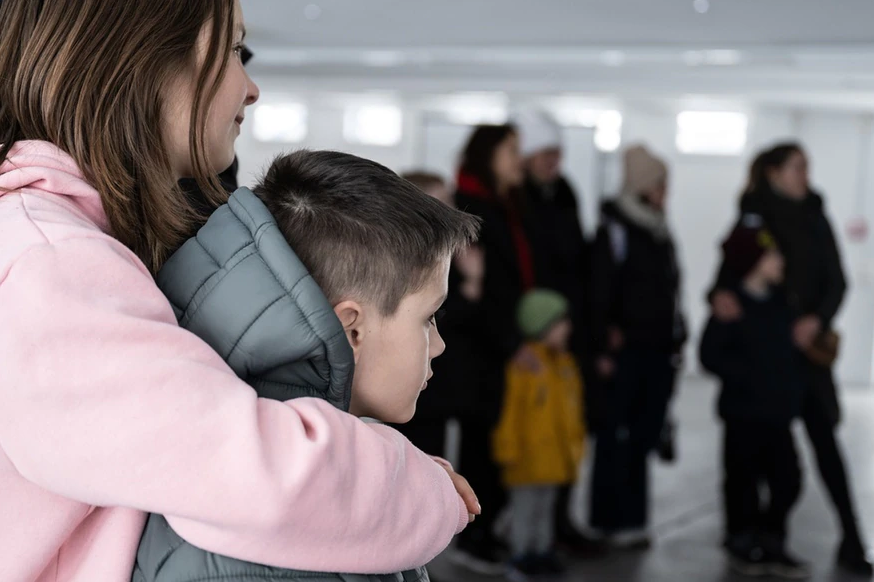Around 10% of Swiss homes are equipped with air-conditioning systems. Istvan Balogh / Alamy Stock Photo More intense and frequent heatwaves have caused demand for air conditioning to skyrocket, even in temperate countries like Switzerland. But there is a catch: the cooler the buildings, the warmer the planet. This summer will be hotter than usual. That’s according to a forecast made by the Federal Office of Meteorology and Climatology (MeteoSwiss) at the end of May, a month in which record temperatures were set. By mid-June an exceptional heatwave hit several regions of Switzerland, with the north of the Alps reaching close to 37°Celsius (98.6° Fahrenheit). Around the world temperatures are rising and events that we call “exceptional” are set to become the norm,
Topics:
Swissinfo considers the following as important: 3.) Swissinfo Business and Economy, 3) Swiss Markets and News, Featured, newsletter
This could be interesting, too:
Nachrichten Ticker - www.finanzen.ch writes Die Performance der Kryptowährungen in KW 9: Das hat sich bei Bitcoin, Ether & Co. getan
Nachrichten Ticker - www.finanzen.ch writes Wer verbirgt sich hinter der Ethereum-Technologie?
Martin Hartmann writes Eine Analyse nach den Lehren von Milton Friedman
Marc Chandler writes March 2025 Monthly

Around 10% of Swiss homes are equipped with air-conditioning systems. Istvan Balogh / Alamy Stock Photo
More intense and frequent heatwaves have caused demand for air conditioning to skyrocket, even in temperate countries like Switzerland. But there is a catch: the cooler the buildings, the warmer the planet.
This summer will be hotter than usual. That’s according to a forecast made by the Federal Office of Meteorology and Climatology (MeteoSwiss) at the end of May, a month in which record temperatures were set. By mid-June an exceptional heatwave hit several regions of Switzerland, with the north of the Alps reaching close to 37°Celsius (98.6° Fahrenheit).
Around the world temperatures are rising and events that we call “exceptional” are set to become the norm, all thanks to climate change. In many places in Switzerland, the number of summer days when temperatures exceed 25°C has doubled since measurements began. The same is true for tropical days when temperatures reach 30°C or above.
With the rising temperatures comes a growing need to cool buildings using air conditioning – which leads to greater electricity consumption and higher global greenhouse gas emissions. The result is a vicious circle that could have serious consequences for the planet and human health.
Two billion air conditioners in the world
Around two billion air-conditioning units are in operation worldwide, according to the International Energy Agency (IEAExternal link). Most of them can be found in buildings in the United States, Japan and increasingly China, where growth in demand since 2010 has been fastest. Demand has also surged in India and Indonesia.
A recent studyExternal link by Eurostat, the statistical office of the European Commission, shows that the need to cool spaces in Europe has increased over the last 40 years.
In the European Union, the value of “cooling degree days”, an index of the energy needs of buildings based on weather conditions, almost tripled between 1979 and 2021. In other words, Eurostat says, the use of air-conditioning systems increased over this period. Conversely, “heating degree days” values decreased by 11%.
Air conditioning in one in ten Swiss homes
Sales of air-conditioning equipment are also on the rise in Switzerland. Although there are no nationwide statistics covering all fixed and mobile devices, the installers and experts SWI swissinfo.ch spoke to confirm that the market has grown since the early 2000s.
“The number of requests has also risen due to the increase in tropical nights [nights when the minimum temperature does not fall below 20°C, ed.],” says Simone Anelotti, head of Neoservice, a plumbing, heating and air conditioning company based in Lugano, canton Ticino. “For some people who may struggle to sleep at night, air conditioning has become a necessity.”
Elderly people are also driving some of the demand, as heat in their case can be more than just a nuisance, says Massimo Moretti, who has worked in the sector for 40 years. In general, he says, people react instinctively and are only interested in air conditioning when a heatwave hits.
“We depend on the weather [for our work],” Moretti explains. “The other day [June 20] it was 36°C and I was inundated with phone calls. The next day it rained, and nobody called.”
During the first heatwave of the year in Switzerland between June 13-19, sales of mobile air conditioners and fans skyrocketed, according to a surveyExternal link of large appliance shops conducted by the 20Minuten newspaper. One online retailer reported a 450% increase in sales.
Households with a fixed air-conditioning system – for which a building permission is required – are still rare, however. Marco Von Wyl, director of the Swiss refrigeration association SVK, estimates that 10% of homes are equipped with an air-conditioning system. But this figure does not include residential buildings with a reversible heat pump, which is able to cool indoor spaces during the summer.
In Europe, around 20% of households have air conditioning. Unsurprisingly, the share is higher in Mediterranean countries such as France (25%External link) and Italy, where one in two households has an air conditionerExternal link. In Germany, only 1-2%External link of living spaces has a cooling system.
Globally, Japan, the US and South Korea are champions of air conditioning, with over 80% of homes being artificially cooled, according to IEA data from 2018.
Air conditioners more polluting than airplanes
The IEA predicts that as a result of rising living standards, population growth and more frequent and extreme heatwaves, the number of installed air-conditioning units could increase by 40% by 2030.
That may be good news for retailers – a fixed air conditioner for a bedroom costs around CHF3,000 ($3,121) in Switzerland – but it is bad news for the environment. Air-conditioning units and electrical fans consume 10% of all the electricity used in the worldExternal link. Together with other appliances in the refrigeration industry, such as refrigerators, they account for about 10% of the world’s CO2 emissionsExternal link – far more than aviation or maritime transport.
That’s because these devices contain refrigerant gases that contribute to the greenhouse effect. The most widely used of these gases today are hydrofluorocarbons (HFCs), which since the late 1980s have progressively replaced chlorofluorocarbons (CFCs) and hydrochlorofluorocarbons (HCFCs), the main contributors to the destruction of the ozone layer.
But HFCs are not harmless either. Their global warming potential is up to 1,000 times that of CO2. The Paris Climate Agreement and international treaties such as the Montreal Protocol, and in particular the Kigali Amendment, which Switzerland has ratified, aim at a drastic reduction of HFCs by mid-century.
The alternatives to HFCs are CO2, ammonia and propane, says Anelotti of Neoservice.
“These are the refrigerant gases of the future,” he says. “But at the moment their use is still limited by their high cost, hazardousness and lower efficiency.”
Translated from Italian / Edited by Veronica De Vore
Tags: Featured,newsletter








